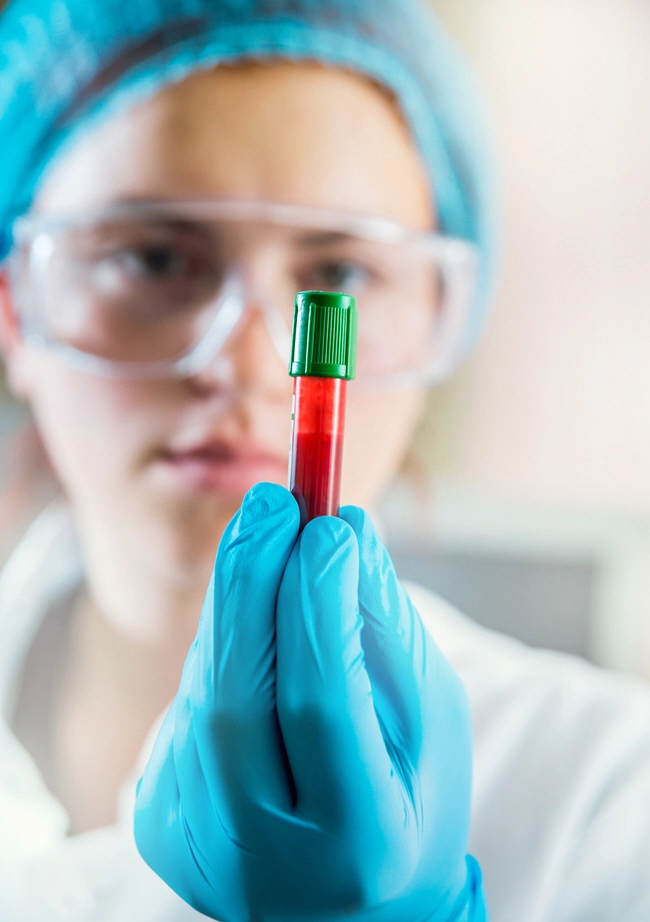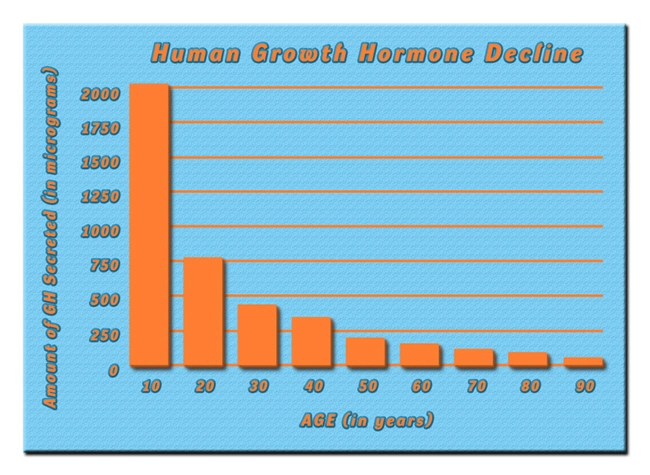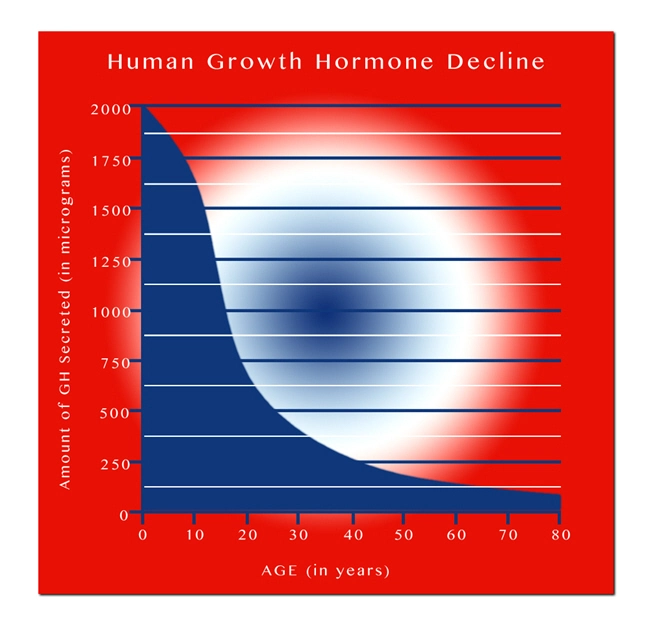
Introduction to Primary Hypogonadism
Primary hypogonadism, also known as testicular failure, is a condition where the testes fail to produce adequate levels of testosterone and sperm. This can lead to a range of symptoms including decreased libido, infertility, and reduced muscle mass. In American males, understanding the genetic underpinnings of this condition is crucial for effective diagnosis and management.
The Role of Genetic Testing
Genetic testing plays a pivotal role in diagnosing primary hypogonadism. By analyzing an individual's DNA, healthcare providers can identify specific genetic mutations that may be responsible for the condition. This is particularly important in cases where the cause of hypogonadism is not apparent through standard clinical assessments.
Key Genetic Mutations
Several genetic mutations have been linked to primary hypogonadism. One of the most well-known is the mutation in the Klinefelter syndrome gene, which results in an extra X chromosome (XXY). This condition affects approximately 1 in 500 to 1,000 newborn males in the United States. Other mutations include those in the NR5A1 gene, which is essential for the development of the testes, and the DAX1 gene, mutations of which can lead to hypogonadotropic hypogonadism.
The Process of Genetic Testing
Genetic testing for primary hypogonadism typically involves a blood or saliva sample. The sample is then analyzed in a laboratory to detect any genetic abnormalities. The process can be initiated by a healthcare provider who suspects a genetic basis for the patient's symptoms. It is important for patients to discuss the potential benefits and limitations of genetic testing with their healthcare provider before proceeding.
Benefits of Genetic Testing
The primary benefit of genetic testing is the ability to confirm a diagnosis of primary hypogonadism. This confirmation can lead to more targeted treatment plans, such as hormone replacement therapy, which can significantly improve quality of life. Additionally, genetic testing can provide valuable information for family planning, as it can help predict the likelihood of passing the condition to future generations.
Challenges and Considerations
Despite its benefits, genetic testing for primary hypogonadism is not without challenges. The cost of testing can be prohibitive for some individuals, and insurance coverage may vary. Moreover, the emotional impact of receiving a genetic diagnosis should not be underestimated. Patients may experience anxiety or depression upon learning about their genetic predisposition to certain conditions.
The Importance of Genetic Counseling
Genetic counseling is an essential component of the genetic testing process. Counselors can help patients understand the implications of their genetic results and provide support in making informed decisions about their health and future. For American males, access to genetic counseling can be facilitated through healthcare providers or specialized genetic clinics.
Future Directions in Genetic Research
Ongoing research into the genetics of primary hypogonadism holds promise for the development of new diagnostic tools and treatments. As our understanding of the genetic landscape improves, it is hoped that more personalized approaches to managing the condition will become available. This is particularly relevant for American males, who may benefit from tailored interventions based on their unique genetic profiles.
Conclusion
Genetic testing for primary hypogonadism offers a powerful tool for diagnosing and managing this condition in American males. By identifying specific genetic mutations, healthcare providers can offer more targeted treatments and support. While challenges remain, the potential benefits of genetic testing make it an invaluable resource for those affected by primary hypogonadism. As research continues to advance, the future looks promising for improving the lives of those with this condition.
Contact Us Today For A Free Consultation
Dear Patient,
Once you have completing the above contact form, for security purposes and confirmation, please confirm your information by calling us.
Please call now: 1-800-380-5339.
Welcoming You To Our Clinic, Professor Tom Henderson.

- Primary Hypogonadism: Understanding, Overcoming Stigma, and Effective Treatment in American Males [Last Updated On: February 26th, 2025] [Originally Added On: February 26th, 2025]
- Primary Hypogonadism and Diabetes: Dual Challenges and Integrated Management in Men's Health [Last Updated On: March 18th, 2025] [Originally Added On: March 18th, 2025]
- Primary Hypogonadism and Obesity Link in American Males: Hormonal and Metabolic Insights [Last Updated On: March 18th, 2025] [Originally Added On: March 18th, 2025]
- Primary Hypogonadism in American Men: Medical Treatment and Vital Support Networks [Last Updated On: March 18th, 2025] [Originally Added On: March 18th, 2025]
- Primary Hypogonadism: Impacts, Diagnosis, and Treatment Options for American Men [Last Updated On: March 18th, 2025] [Originally Added On: March 18th, 2025]
- Primary Hypogonadism: Innovative Treatments and Hope for American Males [Last Updated On: March 19th, 2025] [Originally Added On: March 19th, 2025]
- Emotional Journey of Primary Hypogonadism in American Males: Challenges and Support [Last Updated On: March 19th, 2025] [Originally Added On: March 19th, 2025]
- Exercise Strategies for Managing Primary Hypogonadism in American Males [Last Updated On: March 20th, 2025] [Originally Added On: March 20th, 2025]
- Diet and Nutrition's Role in Managing Primary Hypogonadism in American Males [Last Updated On: March 20th, 2025] [Originally Added On: March 20th, 2025]
- Primary Hypogonadism: Causes, Symptoms, and Management in Aging American Men [Last Updated On: March 21st, 2025] [Originally Added On: March 21st, 2025]
- Primary Hypogonadism's Impact on Muscle Mass in American Males: Insights and Interventions [Last Updated On: March 21st, 2025] [Originally Added On: March 21st, 2025]
- Financial Burden of Primary Hypogonadism on American Men: Costs, Coverage, and Coping Strategies [Last Updated On: March 22nd, 2025] [Originally Added On: March 22nd, 2025]
- Managing Primary Hypogonadism: Navigating Diagnosis, Treatment, and Healthcare in America [Last Updated On: March 22nd, 2025] [Originally Added On: March 22nd, 2025]
- Primary Hypogonadism in American Men: Advocacy, Diagnosis, and Treatment Strategies [Last Updated On: March 22nd, 2025] [Originally Added On: March 22nd, 2025]
- Primary Hypogonadism: Impact on Work and Management Strategies for American Men [Last Updated On: March 22nd, 2025] [Originally Added On: March 22nd, 2025]
- Exploring Primary Hypogonadism: Current Treatments and Future Innovations for American Males [Last Updated On: March 22nd, 2025] [Originally Added On: March 22nd, 2025]
- Primary Hypogonadism in American Men: Holistic Management and Quality of Life Improvement [Last Updated On: March 23rd, 2025] [Originally Added On: March 23rd, 2025]
- Primary Hypogonadism: Long-term Effects and Management in American Males [Last Updated On: March 23rd, 2025] [Originally Added On: March 23rd, 2025]
- Primary Hypogonadism: Causes, Impacts, and Treatment Options for American Men [Last Updated On: March 23rd, 2025] [Originally Added On: March 23rd, 2025]
- Primary Hypogonadism: Understanding, Diagnosing, and Treating Low Testosterone in American Males [Last Updated On: March 24th, 2025] [Originally Added On: March 24th, 2025]
- Managing Primary Hypogonadism: Testosterone's Role and Treatment in American Men [Last Updated On: March 24th, 2025] [Originally Added On: March 24th, 2025]
- Diagnosing Primary Hypogonadism: Symptoms, Testing, and Treatment Journey for American Men [Last Updated On: March 24th, 2025] [Originally Added On: March 24th, 2025]
- Primary Hypogonadism and Sleep: Impacts and Interventions for American Men [Last Updated On: March 24th, 2025] [Originally Added On: March 24th, 2025]
- Primary Hypogonadism: Causes, Treatment, and Management for American Men [Last Updated On: March 24th, 2025] [Originally Added On: March 24th, 2025]
- Primary Hypogonadism's Impact on Physical Activity in American Males [Last Updated On: March 25th, 2025] [Originally Added On: March 25th, 2025]
- Challenges in Diagnosing Primary Hypogonadism in American Males: Symptoms, Testing, and Stigma [Last Updated On: March 25th, 2025] [Originally Added On: March 25th, 2025]
- Primary Hypogonadism in American Men: Symptoms, Diagnosis, and Mental Health Support [Last Updated On: March 25th, 2025] [Originally Added On: March 25th, 2025]
- Primary Hypogonadism: Challenges, Resilience, and Thriving Strategies for American Males [Last Updated On: March 25th, 2025] [Originally Added On: March 25th, 2025]
- Primary Hypogonadism: Symptoms, Treatment, and the Vital Role of Peer Support [Last Updated On: March 25th, 2025] [Originally Added On: March 25th, 2025]
- Primary Hypogonadism: Understanding Treatments and Managing Side Effects in American Males [Last Updated On: March 25th, 2025] [Originally Added On: March 25th, 2025]
- Primary Hypogonadism: Social Impacts and Navigating Life in American Men [Last Updated On: March 25th, 2025] [Originally Added On: March 25th, 2025]
- Managing Primary Hypogonadism: Importance of Regular Check-ups for American Males [Last Updated On: March 26th, 2025] [Originally Added On: March 26th, 2025]
- Primary Hypogonadism: Impact on Self-Esteem and Holistic Management Strategies [Last Updated On: March 26th, 2025] [Originally Added On: March 26th, 2025]
- Nutritionists' Vital Role in Managing Primary Hypogonadism in American Males [Last Updated On: March 26th, 2025] [Originally Added On: March 26th, 2025]
- Managing Primary Hypogonadism: Diagnosis, Treatment, and Lifestyle Strategies [Last Updated On: March 26th, 2025] [Originally Added On: March 26th, 2025]
- Primary Hypogonadism: Impact on Body Image and Holistic Treatment Approaches [Last Updated On: March 26th, 2025] [Originally Added On: March 26th, 2025]
- Primary Hypogonadism in American Males: Diagnosis, Treatment, and Lifestyle Management [Last Updated On: March 26th, 2025] [Originally Added On: March 26th, 2025]
- Primary Hypogonadism: Emotional Impacts and Management Strategies for American Males [Last Updated On: March 26th, 2025] [Originally Added On: March 26th, 2025]
- Primary Hypogonadism in American Men: The Vital Role of Community Support [Last Updated On: March 26th, 2025] [Originally Added On: March 26th, 2025]
- Primary Hypogonadism's Impact on Career Aspirations in American Males [Last Updated On: March 27th, 2025] [Originally Added On: March 27th, 2025]
- Primary Hypogonadism: Symptoms, Diagnosis, and Management in American Men [Last Updated On: March 27th, 2025] [Originally Added On: March 27th, 2025]
- Primary Hypogonadism: Advocating for Research and Awareness in American Men [Last Updated On: March 27th, 2025] [Originally Added On: March 27th, 2025]
- Primary Hypogonadism: Understanding, Managing, and Educating American Males [Last Updated On: March 27th, 2025] [Originally Added On: March 27th, 2025]
- Primary Hypogonadism: Symptoms, Diagnosis, Treatment, and Healthcare Navigation in the U.S. [Last Updated On: March 27th, 2025] [Originally Added On: March 27th, 2025]
- Family Support Crucial for Managing Primary Hypogonadism in American Males [Last Updated On: March 27th, 2025] [Originally Added On: March 27th, 2025]
- Primary Hypogonadism: Diagnosis, Specialist Care, and Treatment for American Men [Last Updated On: March 28th, 2025] [Originally Added On: March 28th, 2025]
- Primary Hypogonadism: Impact, Diagnosis, and Treatment for American Men's Health [Last Updated On: March 28th, 2025] [Originally Added On: March 28th, 2025]
- Primary Hypogonadism: Emotional Support Needs and Comprehensive Care for American Men [Last Updated On: March 29th, 2025] [Originally Added On: March 29th, 2025]
- Exercise Physiologists' Vital Role in Managing Primary Hypogonadism in American Males [Last Updated On: March 30th, 2025] [Originally Added On: March 30th, 2025]
- Managing Primary Hypogonadism: Stress, Anxiety, and Holistic Health Strategies for Men [Last Updated On: March 30th, 2025] [Originally Added On: March 30th, 2025]
- Primary Hypogonadism: Impacts on Male Fertility and Family Planning in America [Last Updated On: March 30th, 2025] [Originally Added On: March 30th, 2025]
- Managing Primary Hypogonadism: Importance of Continuous Monitoring and Early Diagnosis [Last Updated On: March 31st, 2025] [Originally Added On: March 31st, 2025]
- Managing Primary Hypogonadism: Diet, Exercise, Sleep, and Lifestyle Strategies for American Men [Last Updated On: March 31st, 2025] [Originally Added On: March 31st, 2025]
- Overcoming Psychological Barriers to Treating Primary Hypogonadism in American Males [Last Updated On: April 1st, 2025] [Originally Added On: April 1st, 2025]
- Primary Hypogonadism in American Males: Diagnosis, Treatment, and Endocrinologist's Role [Last Updated On: April 5th, 2025] [Originally Added On: April 5th, 2025]
- Primary Hypogonadism: Impacts and Interventions for American Males' Social Life [Last Updated On: April 5th, 2025] [Originally Added On: April 5th, 2025]
- Financial Assistance Options for American Men with Primary Hypogonadism [Last Updated On: April 6th, 2025] [Originally Added On: April 6th, 2025]
- Primary Hypogonadism in American Males: Importance of Patient Education for Better Outcomes [Last Updated On: April 7th, 2025] [Originally Added On: April 7th, 2025]
- Managing Primary Hypogonadism: Symptoms, Diagnosis, and Treatment in American Men [Last Updated On: April 7th, 2025] [Originally Added On: April 7th, 2025]
- Primary Hypogonadism in American Men: Symptoms, Diagnosis, and Treatment Options [Last Updated On: April 9th, 2025] [Originally Added On: April 9th, 2025]
- Support Groups: Vital for American Males with Primary Hypogonadism [Last Updated On: April 9th, 2025] [Originally Added On: April 9th, 2025]
- Primary Hypogonadism: Challenges and Strategies for Enhancing Treatment Adherence in American Males [Last Updated On: April 10th, 2025] [Originally Added On: April 10th, 2025]
- Technology's Role in Managing Primary Hypogonadism: Wearables, Telemedicine, and Advanced Diagnostics [Last Updated On: April 10th, 2025] [Originally Added On: April 10th, 2025]
- Managing Primary Hypogonadism: A Multidisciplinary Approach for American Men [Last Updated On: April 11th, 2025] [Originally Added On: April 11th, 2025]
- Primary Hypogonadism: Challenges and Holistic Support for American Males [Last Updated On: April 12th, 2025] [Originally Added On: April 12th, 2025]
- Mental Health Apps: Supporting American Men with Primary Hypogonadism [Last Updated On: April 13th, 2025] [Originally Added On: April 13th, 2025]
- Primary Hypogonadism: Symptoms, Treatments, and Latest Research for American Men [Last Updated On: April 14th, 2025] [Originally Added On: April 14th, 2025]
- Primary Hypogonadism's Impact on American Males' Hobbies and Interests [Last Updated On: April 16th, 2025] [Originally Added On: April 16th, 2025]
- Managing Primary Hypogonadism: Importance of Regular Monitoring and Holistic Care [Last Updated On: April 16th, 2025] [Originally Added On: April 16th, 2025]
- Primary Hypogonadism: Challenges and Strategies for American Males' Travel [Last Updated On: April 17th, 2025] [Originally Added On: April 17th, 2025]
- Managing Primary Hypogonadism: Symptoms, Diagnosis, and Treatment for American Men [Last Updated On: April 17th, 2025] [Originally Added On: April 17th, 2025]
- Physical Therapy's Vital Role in Managing Primary Hypogonadism in American Males [Last Updated On: April 18th, 2025] [Originally Added On: April 18th, 2025]
- Managing Primary Hypogonadism: A Multidisciplinary Approach for American Men's Health [Last Updated On: April 18th, 2025] [Originally Added On: April 18th, 2025]
- Managing Primary Hypogonadism: Empowering American Men in the Workplace [Last Updated On: April 18th, 2025] [Originally Added On: April 18th, 2025]
- Primary Hypogonadism's Impact on American Males' Educational Pursuits and Management Strategies [Last Updated On: April 18th, 2025] [Originally Added On: April 18th, 2025]
- Dietitians' Role in Managing Primary Hypogonadism Through Nutrition in American Males [Last Updated On: April 19th, 2025] [Originally Added On: April 19th, 2025]
- Primary Hypogonadism in American Men: Symptoms, Treatment, and Personalized Care [Last Updated On: April 19th, 2025] [Originally Added On: April 19th, 2025]









